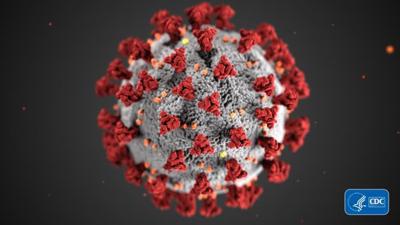The city-parish is paying LSU $150,000 to conduct more research of the parish's sewage systems to gain new insight into how the coronavirus is impacting the community.
This new round of testing to detect the virus in residential fecal matter will be targeted in specific neighborhoods with the intent to gain a clearer snapshot of where the virus's spread is slowing or getting worse, and possibly predict if another resurgence of COVID-19 is on the horizon.
"Anything that can give us more specific, targeted information about where we're seeing coronavirus in our parish is always useful," said Mark Armstrong, spokesperson for East Baton Rouge Parish Mayor-President Sharon Weston Broome.
The funding for the research was narrowly approved Wednesday night by Metro Council members, many of whom didn't miss the opportunity to see the humor in the administration's request.
To get a clearer picture of how many people have the novel coronavirus in Baton Rouge and New Orleans, LSU and Tulane researchers are studying…
"So we're doing contact tracing with poo now?" Councilwoman Jennifer Racca quipped.
Councilwoman Donna Collins-Lewis later argued, "We have too much free (COVID-19) testing during this point in time to determine hot spots instead of opening up a can of poo-poo to do it."
Councilman Matt Watson also voiced opposition to the expenditure, but mainly because officials within Broome's administration couldn't assure him the city-parish could recoup the funds through the federal government's coronavirus relief money.
For the past three months, LSU's environmental engineering department and School of Veterinary Medicine have been testing wastewater samples collected near the city-parish's two sewage treatment plants in the south and north ends of the parish.
While that first round of testing did give city-parish and state health officials an early indication of the case spikes the state experienced in late June and early July, Rick Speer, the city-parish director of environmental services, told the council it didn't provide the concentrated data they're now seeking.
The testing involves taking wastewater samples, pasteurizing them and then extricating genetic information that shows traces of the virus. COVID-19 patients shed the virus in fecal matter and continue to shed the virus for up to five weeks after negative respiratory samples.
Speer, and other council members who supported the funding, framed the testing as another tool to pinpoint asymptomatic carriers of the virus as well.
The targeted data will likely be used to determine where mitigation messaging and measures need to be more focused in the days ahead.
John Pardue, a civil and environmental engineering professor at LSU, said the samples he and his team collected in June, July and August showed a drop in virus infection rates after Broome issued her mask mandate July 1. The governor issued a statewide mask order approximately two weeks later as virus numbers surged to troubling levels.
Mayor-President Sharon Weston Broome's office said Friday that an increase in East Baton Rouge Parish's coronavirus cases so alarmed the White…
Instead of pulling samples from just the two large sewer facilities, Pardue said, the new round of city-financed research will involve collecting the samples from lift stations in various neighborhoods before the wastewater is pumped to the sewer plants.
"We'd like to do this at Southern University the way we're doing it around LSU now as well," he said. "Unfortunately this testing is expensive. So it's just a matter of getting the resources we need in hand to push out the data."
Speer said LSU is pursuing grants to finance further testing and possibly expand its scope.
Council members voting Wednesday for the $150,000 allocation were Chandler Loupe, Scott Wilson, Erika Green, LaMont Cole, Dwight Hudson, Tara Wicker and Racca. Voting against it were Collins-Lewis, Chauna Banks, Denise Amoroso and Watson. Council member Trae Welch was absent during the vote.
"I understand the science of this and I think it stands on its merits," Hudson said before offering the motion to approve the funds. "I think we need to use all the tools that we can in this pandemic. Anything to help save lives."




